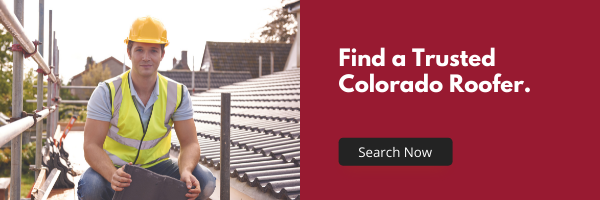Door-To-Door Roofing Contractors: Who To Trust And Who To Avoid
If you live in Colorado, you’ve probably had a roofing contractor knock on your door after a major storm. While some door-to-door roofers are legitimate professionals offering essential services, others are scammers looking to take advantage of homeowners—especially after hailstorms and high winds.
So, how do you separate the trustworthy roofers from the frauds? Here’s what to look for.
Signs of a Legitimate Roofing Contractor 
- They Have a Local Presence – A reputable roofer will have a physical office in Colorado and a history of working in your community. Ask for a local address and verify it online.
- They Are Licensed and Insured – Colorado does not require a statewide roofing license. However, roofing contractors must be registered with the Colorado Secretary of State and obtain a roofing license and/or permit from the local city or county where the work is performed. Always ask for proof of insurance and licensing before agreeing to any work.
- They Offer a Written Proposal – A trustworthy roofer provides a detailed written proposal outlining the cost, materials, and scope of work. If someone insists on a verbal agreement, it’s a red flag. For an insurance claim, they should provide a detailed scope of work from the insurance company.
- They Don’t Pressure You to Sign Immediately – A legitimate roofer will give you time to consider your options and compare proposals. Be wary of anyone pushing you to sign on the spot.
- They Have Positive Local Reviews – Check Google, Yelp, or the Better Business Bureau (BBB) to see if the company has good reviews. If they have a history of unresolved complaints, that’s a bad sign.
- They Follow Colorado Roofing Laws – A reputable contractor will comply with state laws, including the residential roofing law, which includes the 72-hour right-to-cancel policy and prohibits waiving insurance deductibles.
For more information, check out our guide on Selecting a Professional Colorado Roofing Contractor.
Red Flags: Signs of a Roofing Scam 
- They Show Up Right After a Storm and Demand Immediate Action – While storm chasers often claim to be “in the area,” many are from out of state with no long-term presence in Colorado. Do your research and ensure they are truly local.
- They Offer to Pay Your Deductible – This is illegal in Colorado. If a contractor says they will “cover” or “waive” your insurance deductible, they are breaking the law, and you could be at risk.
- They Ask for Full Payment Upfront – While a small deposit is normal, never pay the full amount before any work begins. Scammers often take the money and disappear.
- They Avoid Giving a Written Contract – Without a written agreement, you have no proof of what was promised, making it easier for scammers to cut corners or abandon the job.
- They Pressure You to Sign an Exclusive Agreement – Some shady roofers will try to get you to sign a contract that prevents you from hiring other contractors, locking you into their service before you can compare options.
- They Have No Local References – A trustworthy roofer should provide references from past clients in your area. Don’t just take their word for it—ask your neighbors, friends, and local references for referrals if they have a roofer they trust. You can also check with manufacturers and suppliers to find reputable roofers.
- They Use Confusing Language to Get You to Sign a Contract – Some roofing companies will call a document an "estimate," "agreement," or "authorization," but in reality, it functions as a binding contract. If there’s any fine print or legal language, take the time to review it before signing—even if they say they need it just to inspect your roof. Once you sign, you could be locked into a contract without realizing it.
How to Protect Yourself
- Verify Their License and Insurance – Ask for their credentials and check with your local city or county licensing board.
- Research the Company – Look up the contractor’s name, phone number, and business address online. Be wary of companies that only have a P.O. Box.
- Get Multiple Proposals – Compare proposals from at least three different roofers to ensure you're getting a fair assessment and feel comfortable with the company you choose—not just the first person to knock on your door.
- Don’t Sign Anything Under Pressure – Take your time to read contracts carefully and understand the terms before committing.
- Ask Directly If the Paperwork Is a Contract – If they call it an “estimate” or “agreement,” or “proposal” clarify whether signing it legally binds you to their services.
- Trust your gut, but verify the facts—especially if you feel pressured into signing anything.
- Report Suspicious Activity – If you suspect a scam, report it to the Colorado Attorney General’s office, the BBB, or your local consumer protection agency.
Final Thoughts
Not all door-knocking roofers are scammers—many are legitimate professionals trying to help homeowners after severe weather. However, being cautious and informed can help you avoid fraudulent contractors who prey on storm victims.
If you ever feel uncertain, take your time, do your research, and never rush into a decision. Your roof is a major investment, and choosing the right contractor will ensure your home stays protected for years to come.
If you are looking for a vetted and reputable roofing contractor in Colorado, visit the CRA's member directory to find a contractor near you.

